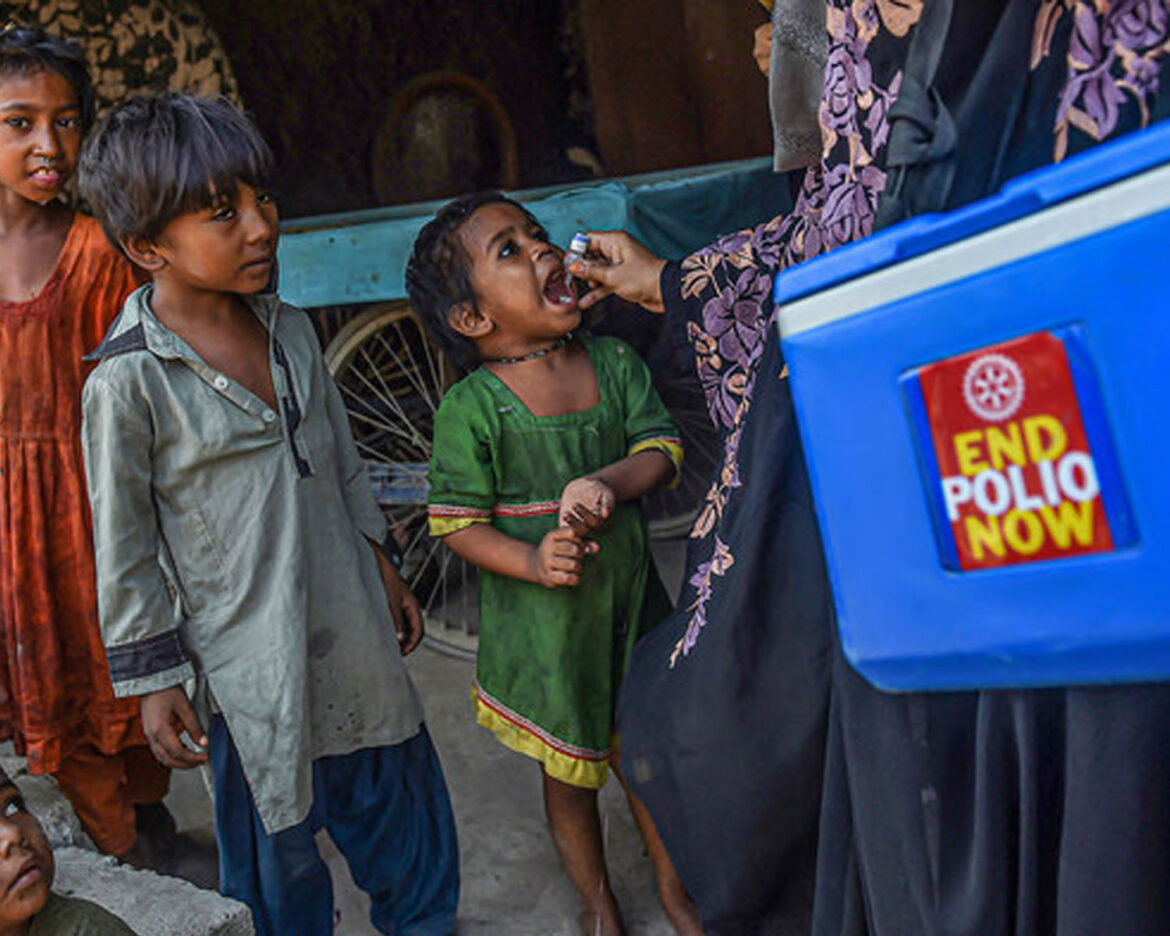Pakistan is witnessing an alarming surge in polio cases, with the numbers skyrocketing from eight cases in June to 33 by mid-October. This worrying trend not only highlights the ongoing struggle against polio but also underscores deeper systemic healthcare failures. Despite the efforts to combat the virus, the rise in cases reveals a broader issue rooted in poor governance and a crumbling healthcare infrastructure.
Several challenges have been persistent, including disinformation, parental refusal, and violent attacks on polio workers. However, the conversation must shift beyond these hurdles. The real crisis lies in the country’s underfunded and neglected healthcare system, which has left millions of children vulnerable, not only to polio but also to various preventable diseases.
The situation in Balochistan is particularly dire, where immunisation coverage stands at a mere 37%. Rural Health Centres (RHCs) in the province remain under-resourced or non-functional, leaving large segments of the population without access to basic healthcare. Vaccination campaigns, no matter how well-intentioned, offer only temporary solutions to the chronic neglect of public health services in such areas.
In addition to the healthcare infrastructure failures, there are growing concerns about the integrity of the immunisation data. Reports of falsified vaccination numbers and inflated coverage rates undermine the government’s claims of success. Meanwhile, environmental samples in high-risk areas, including Quetta, continue to test positive for the virus. This discrepancy between official reports and the on-ground reality has led to a deep erosion of public trust in the healthcare system.
Polio eradication in Pakistan cannot be treated as an isolated issue. Instead, it must be part of a broader public health strategy. The polio crisis should act as a catalyst for the country to reassess its healthcare delivery model. Polio workers, for example, could be trained to promote other essential health measures, such as sanitation, nutrition, and maternal health. This approach would strengthen the healthcare system as a whole, while simultaneously addressing polio.
For any of this to succeed, the government must prioritise basic healthcare infrastructure, especially in rural regions. Functional health centres, consistent routine immunisation programs, and well-trained medical staff are key to protecting children from preventable diseases and restoring public confidence in immunisation campaigns.
Equally crucial is the need for transparency. The falsification of data and manipulation of figures must be investigated, and local officials should be held accountable for any malpractices. Regular audits and stronger oversight are necessary to ensure that every child is vaccinated.
The protection of healthcare workers is another vital issue. They need to be safeguarded from extremist groups that continue to obstruct polio campaigns. At the same time, the responsibility also lies with communities. Public health is a collective duty, and without community cooperation, vaccination efforts will falter. Parents must recognise that routine polio vaccines are the only way to protect their children from a life-altering disease.
Pakistan’s polio crisis is not just about the failure to vaccinate. It is symptomatic of the larger failure to deliver on basic public health promises. The government, healthcare providers, and communities must come together to address these systemic issues and rebuild the nation’s healthcare system—before more children fall victim to preventable diseases.



